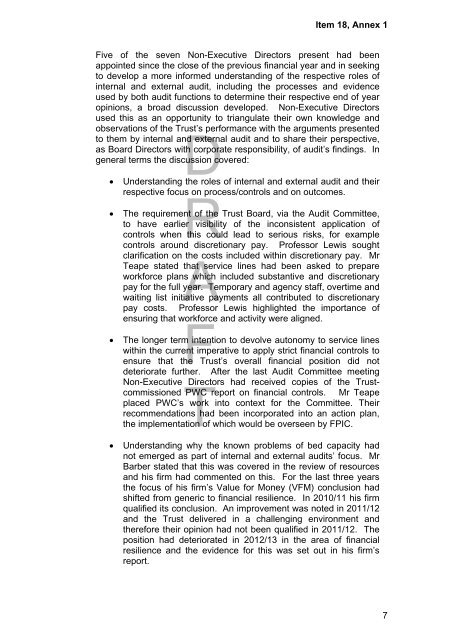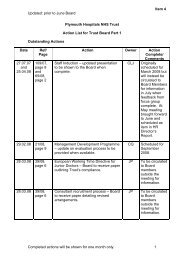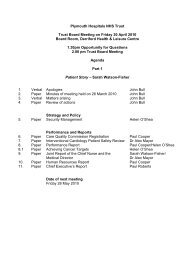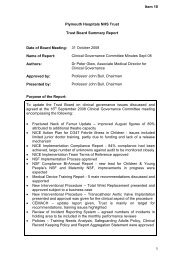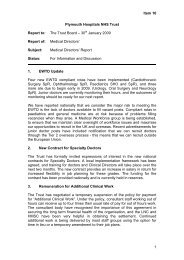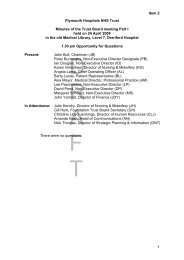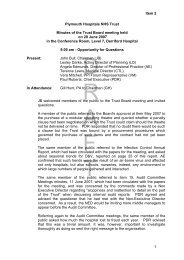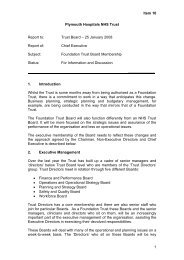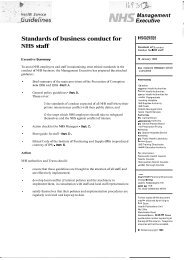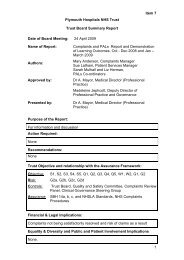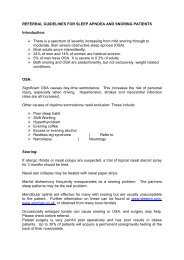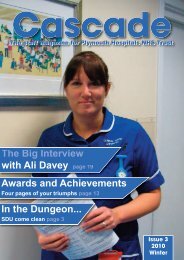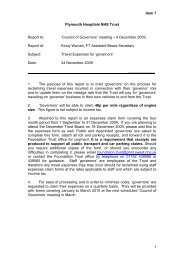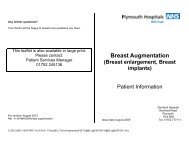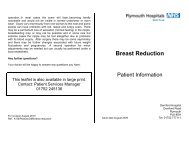Agenda and supporting papers - Plymouth Hospitals NHS Trust
Agenda and supporting papers - Plymouth Hospitals NHS Trust
Agenda and supporting papers - Plymouth Hospitals NHS Trust
You also want an ePaper? Increase the reach of your titles
YUMPU automatically turns print PDFs into web optimized ePapers that Google loves.
Item 18, Annex 1<br />
Five of the seven Non-Executive Directors present had been<br />
appointed since the close of the previous financial year <strong>and</strong> in seeking<br />
to develop a more informed underst<strong>and</strong>ing of the respective roles of<br />
internal <strong>and</strong> external audit, including the processes <strong>and</strong> evidence<br />
used by both audit functions to determine their respective end of year<br />
opinions, a broad discussion developed. Non-Executive Directors<br />
used this as an opportunity to triangulate their own knowledge <strong>and</strong><br />
observations of the <strong>Trust</strong>’s performance with the arguments presented<br />
to them by internal <strong>and</strong><br />
D<br />
external audit <strong>and</strong> to share their perspective,<br />
as Board Directors with corporate responsibility, of audit’s findings. In<br />
general terms the discussion covered:<br />
• Underst<strong>and</strong>ing the roles of internal <strong>and</strong> external audit <strong>and</strong> their<br />
respective focus on process/controls <strong>and</strong> on outcomes.<br />
R<br />
• The requirement of the <strong>Trust</strong> Board, via the Audit Committee,<br />
to have earlier visibility of the inconsistent application of<br />
controls when this could lead to serious risks, for example<br />
controls around discretionary pay. Professor Lewis sought<br />
clarification on the costs included within discretionary pay. Mr<br />
Teape stated<br />
A<br />
that service lines had been asked to prepare<br />
workforce plans which included substantive <strong>and</strong> discretionary<br />
pay for the full year. Temporary <strong>and</strong> agency staff, overtime <strong>and</strong><br />
waiting list initiative payments all contributed to discretionary<br />
pay costs. Professor Lewis highlighted the importance of<br />
ensuring that workforce <strong>and</strong> activity were aligned.<br />
F<br />
• The longer term intention to devolve autonomy to service lines<br />
within the current imperative to apply strict financial controls to<br />
ensure that the <strong>Trust</strong>’s overall financial position did not<br />
deteriorate further. After the last Audit Committee meeting<br />
Non-Executive Directors had received copies of the <strong>Trust</strong>-<br />
T<br />
commissioned PWC report on financial controls. Mr Teape<br />
placed PWC’s work into context for the Committee. Their<br />
recommendations had been incorporated into an action plan,<br />
the implementation of which would be overseen by FPIC.<br />
• Underst<strong>and</strong>ing why the known problems of bed capacity had<br />
not emerged as part of internal <strong>and</strong> external audits’ focus. Mr<br />
Barber stated that this was covered in the review of resources<br />
<strong>and</strong> his firm had commented on this. For the last three years<br />
the focus of his firm’s Value for Money (VFM) conclusion had<br />
shifted from generic to financial resilience. In 2010/11 his firm<br />
qualified its conclusion. An improvement was noted in 2011/12<br />
<strong>and</strong> the <strong>Trust</strong> delivered in a challenging environment <strong>and</strong><br />
therefore their opinion had not been qualified in 2011/12. The<br />
position had deteriorated in 2012/13 in the area of financial<br />
resilience <strong>and</strong> the evidence for this was set out in his firm’s<br />
report.<br />
7


